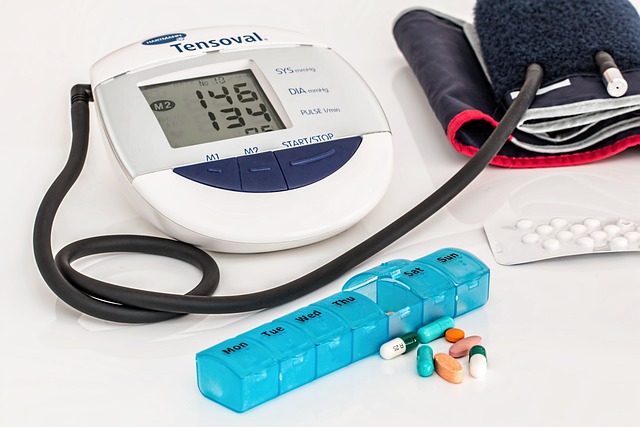What distinguishes high blood pressure from conditions such as arteriosclerosis and atherosclerosis? Are you looking for an answer for this question now you are at your destination here you will get your answer in the most brief and simple way.
what distinguishes high blood pressure from conditions such as arteriosclerosis and atherosclerosis?
Here are 4 options out of which one is true: what do you think about the most accurate option.
a. Arteriosclerosis and atherosclerosis can’t be treated with medication.
b. High blood pressure is identified by chest pain.
c. High blood pressure can’t be treated with medication.
d. High blood pressure has no symptoms.
Answer:
The most accurate option is d. High blood pressure produces no symptoms. High blood pressure, or hypertension, is often referred to as a “silent killer” because it does not present obvious signs or symptoms that people or doctors can easily detect.
To understand this question we will discuss some of its basic terms but for now let’s understand why other options are not true about what distinguishes high blood pressure from conditions such as arteriosclerosis and atherosclerosis?
a. Arteriosclerosis and atherosclerosis can’t be treated with medication.
Several types of drugs can help lower cholesterol, blood pressure, and inflammation, as well as prevent blood clots, all of which contribute to artery hardening and narrowing. So it is false.
b. High blood pressure is identified by chest pain.
. Chest pain can have a variety of causes, including angina, heart attack, or pulmonary embolism, but it is not a reliable indicator of high blood pressure. The majority of people with high blood pressure do not have any other symptoms, including chest pain. So it is also a false option.
c. High blood pressure can’t be treated with medication.
There are many types of drugs that can help lower blood pressure, including ACE inhibitors, beta blockers, calcium channel blockers, and diuretics. These drugs work by relaxing the blood vessels, reducing the workload of the heart, and removing excess fluid and salt from the body. So last option c also is false.
High Blood Pressure
High blood pressure, or hypertension, is a condition in which the force of blood against the artery walls is excessive. This can harm the arteries, raising the risk of heart disease and stroke.
Atherosclerosis?
Arteriosclerosis refers to the hardening and thickening of arteries. This can decrease the elasticity and flexibility of the arteries, impairing blood flow.
Atherosclerosis is a type of arteriosclerosis in which plaque, or fatty substance, accumulates inside the arteries. This can narrow the arteries, limiting the amount of blood and oxygen reaching the organs and tissues.
Difference Between high blood pressure and arteriosclerosis
The primary distinction between high blood pressure and arteriosclerosis or atherosclerosis is that the former is a measurement of blood pressure, whereas the latter are type of artery damage. However, high blood pressure can cause or worsen arteriosclerosis and atherosclerosis by putting additional strain on the artery walls and injuring the endothelial cells, the inner lining of the arteries.
Conclusion
High blood pressure is a measurement of blood pressure, whereas arteriosclerosis and atherosclerosis are two types of artery damage. High blood pressure can cause or worsen artery damage by exerting additional strain on the artery walls. Controlling high blood pressure is critical for avoiding and treating artery damage but high blood pressure has no symptoms that way we can distinguish high blood pressure from conditions such as arteriosclerosis and atherosclerosis so our answer is option d. High blood pressure has no symptoms. For our question “What distinguishes high blood pressure from conditions such as arteriosclerosis and atherosclerosis?”.
Some FAQs:
What’s the distinction between arteriosclerosis and atherosclerosis?
Whereas arteriosclerosis encompasses all lesions that cause artery hardening, atherosclerosis refers to the presence of atheromatous plaque in which lipids accumulate in the arterial tunica intima.
How does blood pressure relate to arteriosclerosis?
Hypertension is a known risk factor for arteriosclerosis, which results in both atherosclerosis of medium-large arteries and arteriolosclerosis of the arterioles. Elevated blood pressure damages the endothelium and vascular wall via mechanical and humoral mechanisms.
Does high blood pressure indicate atherosclerosis?
Blood pressure promotes the progression of atherosclerosis. Atherosclerosis is most common in areas of the vascular system that are under a lot of pressure.


